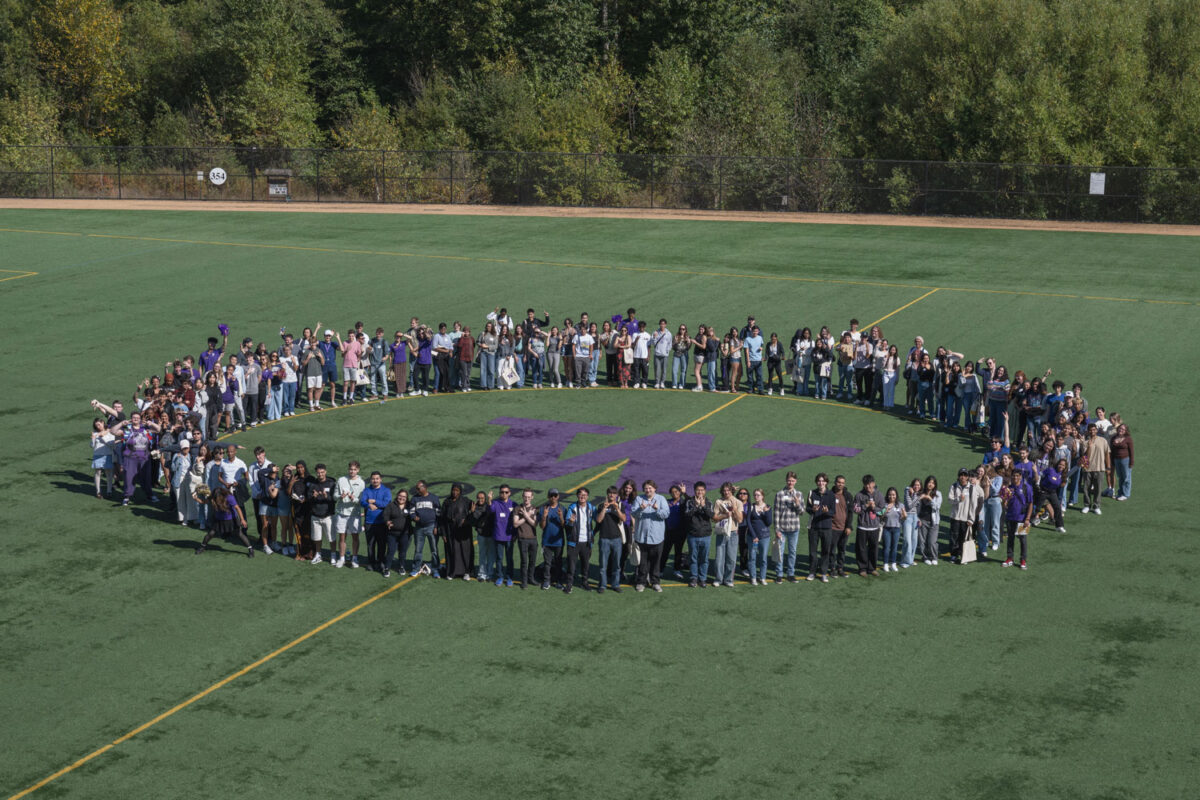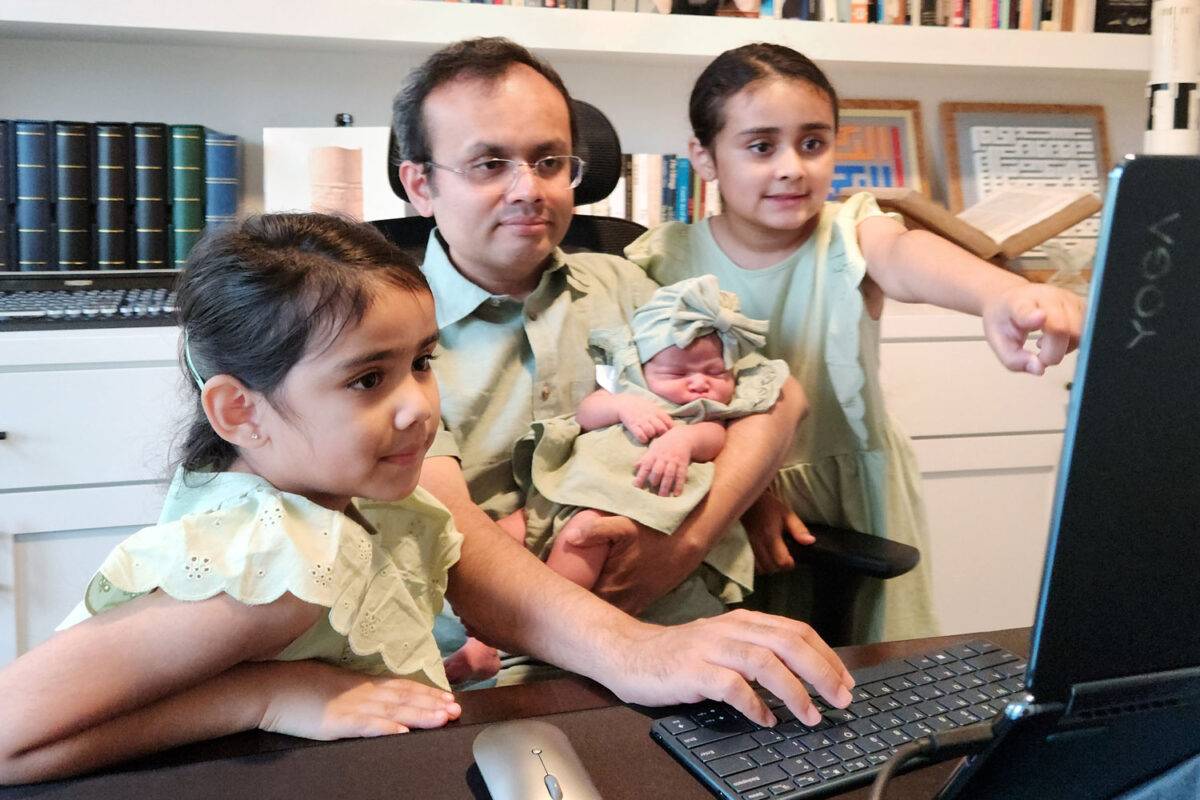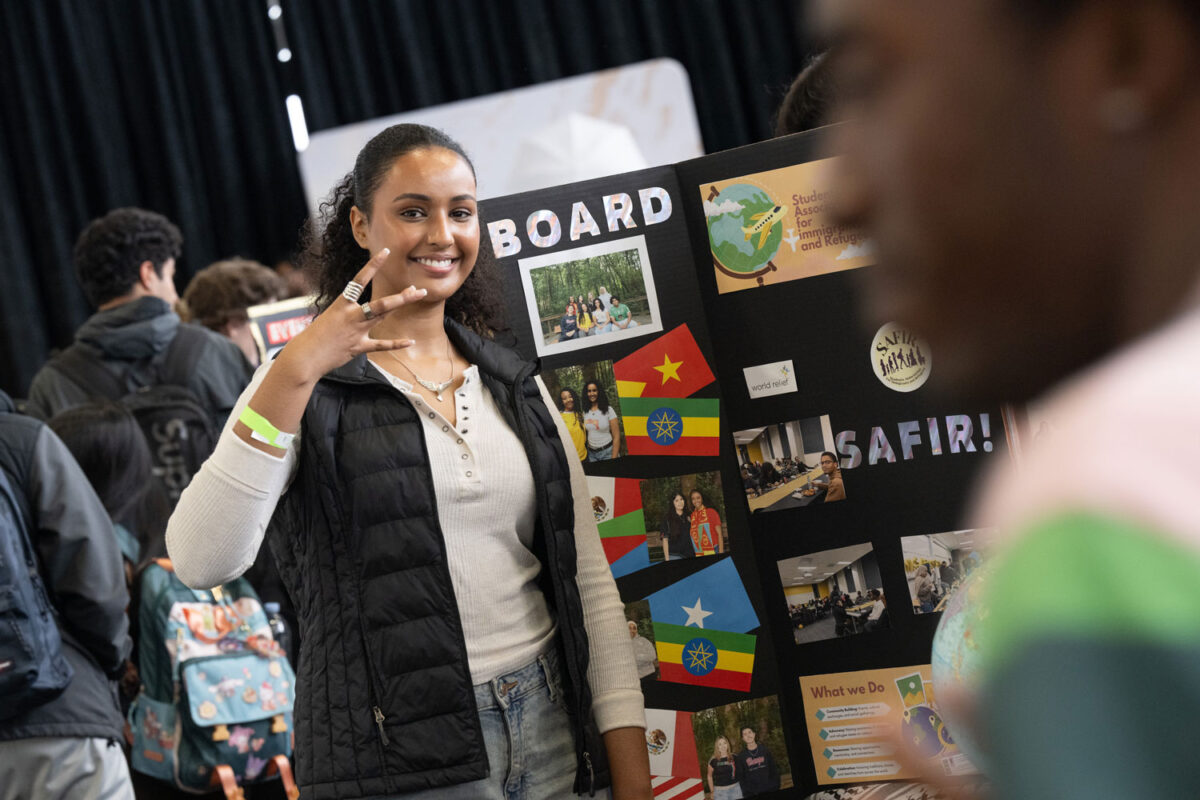Last summer, the School of Educational Studies’ Dr. Allison Hintz, associate professor; Dr. Yue Bian, assistant professor; and Amy Couto, assistant director of Academic Services, were awarded a LEADER initiative grant from College Spark Washington focusing on community-driven solutions to elevate representation in Washington state’s education workforce.
This grant, which funds two years of relationship building and ideating around this issue, is the most current development in a project that began pre-pandemic, after an assessment provided to SES alumni revealed challenges around diversity, equity and inclusion within the state’s teacher workforce.
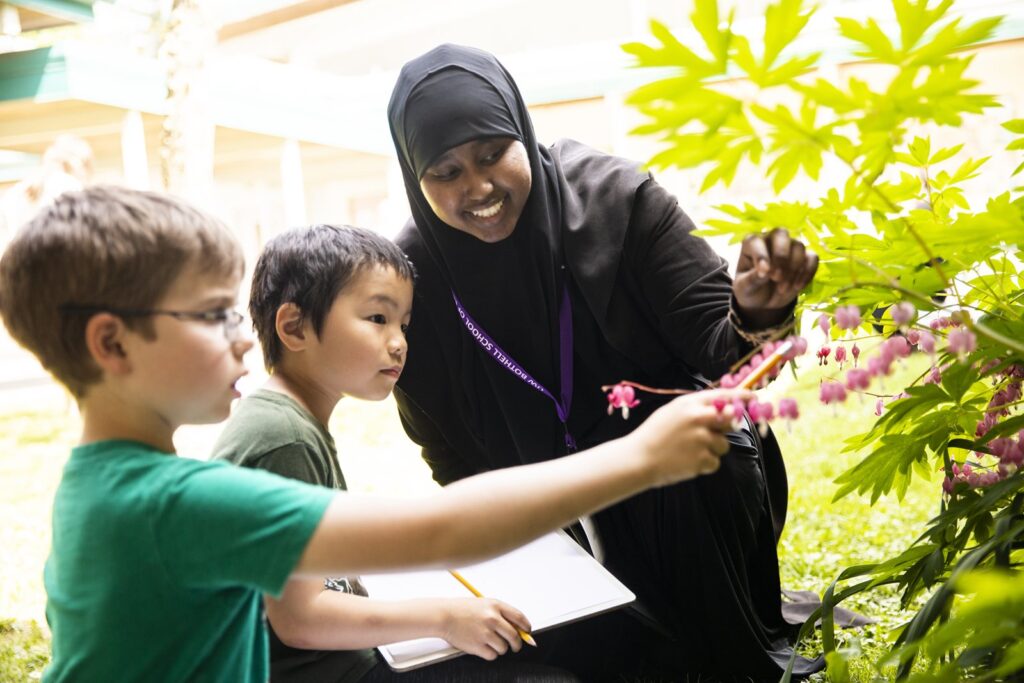
This initiative, say the faculty, is a much-needed inquiry into an issue that heavily impacts students of color in Washington, who are now the majority in the state’s public schools as cited in a recent article in The Seattle Times.
The work is a powerful example of the University of Washington Bothell’s framework of cross-disciplinary scholarship, connected learning and community engagement.
Mentors like themselves
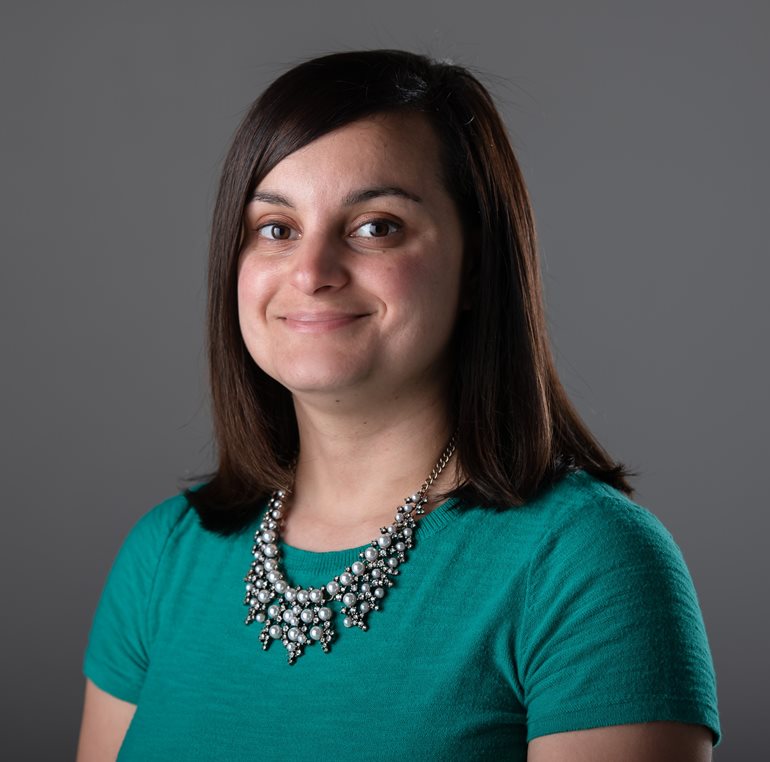
Couto, taking note from academic advisers in other schools around campus, administered a graduation survey to SES students in 2019. As they began compiling the results, they noticed a few themes emerge — in particular, that SES students of color faced many challenges regarding their racial, cultural and linguistic identities once they began student teaching and entered the workforce.
“Some of what we learned from that early survey, in broad strokes, were that things can get hard when our students go out into the field. There is a disproportionate ratio of pre-service teachers of color to practicing teachers who serve in mentoring roles,” Hintz said. “If our pre-service teachers are around 50% candidates of color, 40% first-generation and 30% multi-lingual, and they enter a workforce of mentoring teachers who are upwards 90% mono-lingual white women, it creates a challenge.”
That challenge — a lack of a feeling of belonging and conditions to thrive — leads to the attrition of teachers of color. It is a multi-faceted issue, note the SES faculty, requiring a multi-pronged approach that they and their colleagues are slowly piecing together.
“We’re learning that we need to improve the landscape in the field and to work with people in mentoring roles,” said Hintz. “We need to design professional learning modules for anti-racist pedagogies.”
The faculty also found there was a need to create more professional learning for mentors to help them view candidates of color with an “asset lens” in order to see and value the cultural wealth candidates of color bring to school communities.
Culturally relevant
“Challenges sometimes arise when our pre-service teachers are in their student teaching placements and are paired with a mentor teacher in that elementary school,” said Couto. “They’re learning from a mentor, they’re fully immersed in the world of an elementary school, and that is an experience that can be a challenge for some students who may not have a background of being in these types of environments.
“Our multi-lingual students and students of color sometimes feel unwelcome in their teaching placements because the assets they bring are viewed with a deficit lens.”
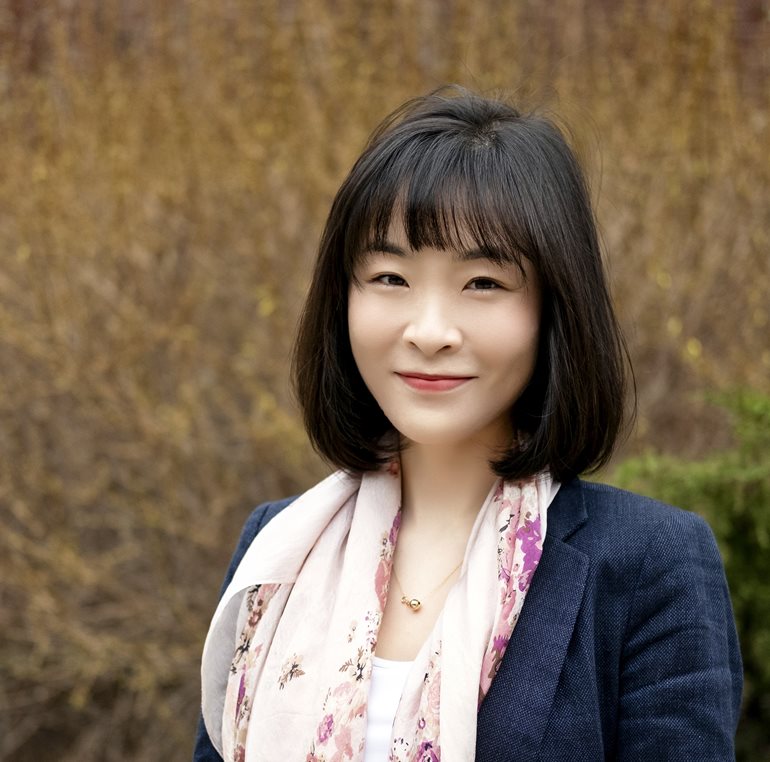
When diverse teachers are viewed and treated this way, it perpetuates attrition and leads to the lack of diversity in the field. “I can’t even remember how many times my students have come to me saying, ‘Hey, you’re the first first-generation immigrant teacher and multi-lingual professor that we’ve had,’” said Bian. “You don’t see a lot of people like me in the field.
“Minoritized teacher candidates need to see themselves represented to know they belong,” she noted, “but a lot of times what they see is mismatched — between who they are versus their mentor-teacher, their colleagues or the people in power such as principals.”
In seeing few teachers who look like them, K-12 students of color internalize harmful stereotypes about themselves. At the same time, white children don’t have the opportunity to see people of color in leadership roles. Creating an inclusive environment for teachers of diverse backgrounds serves to enhance the learning of all K-12 students, as one SES alumni who is Muslim and Southeast Asian, points out.
“Being culturally relevant doesn’t mean to celebrate their holidays and traditions at school,” said Ana Radzi (Elementary Education ’21), a substitute teacher for Seattle Public Schools. “Rather it is a mindset that focuses on students’ identities, values and backgrounds as an asset that can be incorporated into their learning. The key ingredient to understanding a student’s values, culture and unique needs can’t be accomplished without building a strong relationship that is grounded in sincerity, trust and compassion. Only through a strong relationship with their teachers will students share their true selves.”
Support for the work
With these themes emerging, Hintz, Bian and Couto set out to find funding to help them address this issue at the systems level. They first applied for a UW Diversity and Inclusion Seed Grant, which is designed to support projects that align with the University’s Diversity Blueprint.
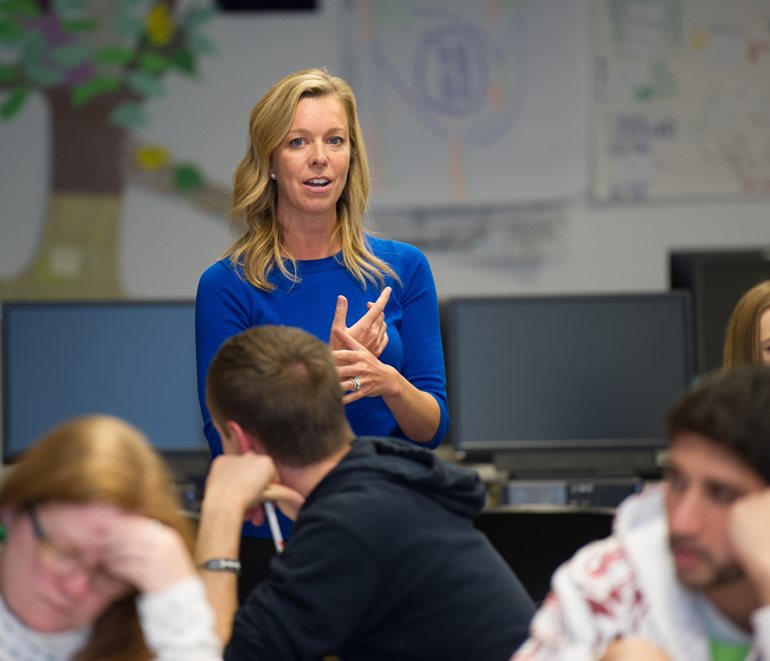
They received the grant in spring 2021, with which they developed a survey that would help them specifically understand the challenges faced by newly graduated teachers. Their goal was to use the responses to inform an SES-specific diversity blueprint.
“Part of what’s exciting about being at UW Bothell is we draw from the rich diversity of our undergraduate students so that children in our schools see themselves in teachers,” said Hintz. “But there’s a lot to understand about the systemic barriers that pre-service teachers from marginalized communities experience in their journeys to becoming teachers.”
As they conducted this early research, Couto learned of the LEADER grant through College Spark, which would allow them to expand their work and hopefully begin implementing some potential solutions within their program and the teaching field.
The goal of the Leaders in Education Advancing Diversity, Equity and Racial Justice Initiative is to fund community-driven projects that address racism in Washington’s teacher workforce, citing that “BIPOC students who are exposed to teachers who reflect their race and ethnicity have higher graduation rates, and when adults in schools reflect communities, authentic school/community partnership are better positioned to transform schools in ways that dismantle racism and benefit from the wisdom and vision of families.”
Foundation of relationships
To do the sort of sustaining systems-level work that could make these outcomes more prevalent, College Spark encourages its grantees to conduct two years of co-planning and community building with other stakeholders.
“This is a unique opportunity because building relationships is the deliverable at this phase,” Hintz said. “College Spark understands that in order to interrupt the current systems and to effect deep and sustaining change, we have to have strong relationships.
“We have time to breathe and consider the assets we all bring to this work — for example, to learn the hopes and dreams of children from the Tulalip Tribes, and to learn what we as a school can do to support more Indigenous teachers in classrooms.”
Hintz, Bian and Couto have built a regional coalition encompassing university teacher preparation programs, school districts and community-based organizations. Their core collaborators include Chelsea Craig from the Marysville School District, Dulce Ruiz from Everett Public Schools, Tracy Meloy from Northshore School District and Mary Wilber from the Eastside Native American Education Program.
Additional coalition partners include: Dr. Carrie Tzou and Kellie Holden, Goodlad Institute for Educational Renewal at UW Bothell; Rob Baumgartner, Edmonds School District; Jared Kirk, Everett Education Association; Kevin Allen, Everett Public Schools; Alejandro Vergara, Marysville School District; Robbi Reed, Northshore Education Association; Chris Bigelow, Ranna Harb, Srinivas Khedam and Ayva Thomas with Northshore School District Race & Educational Justice Department; Diana White, Teachers of Color Foundation for the Edmonds School District; Doug Hale and Jon Young, Northshore School District; and Jessica Bustad, Tulalip Tribes.
A more diverse workforce
Through 2024, said Hintz, the coalition members will work to deepen their relationships and to discuss ideas that could help “regional partners to recruit and serve teachers from historically underrepresented groups in education, improve retention and graduation rates for teachers of color, and prepare an educational system that is designed to sustain the well-being and thriving of culturally and linguistically diverse teachers.”
The ideas will then be developed into a plan for systems-level change that will better support and celebrate Washington state’s diverse K-12 students.
As they look toward the future, Hintz, Bian and Couto already have plans in place to apply for the next phase of funding (also through College Spark) that would provide six years of funding to implement the plan.
“Education lives at the heart of our democracy, and if we want to build a more just society, we need to build more just schools,” Hintz said. “We are excited to work with each other and with our students to design a better educational system so children see themselves in their teachers, go into the teaching profession and serve as mentors for future teachers.
“That is how we will build more just schools.”
UW Bothell offers a Master of Education that is designed to serve the educational and professional goals of currently certificated K-12 teachers and practitioners in a variety of fields. The Critical Educational Change and Leadership concentration positions students to work against inequity in all aspects of human life.


